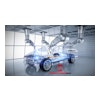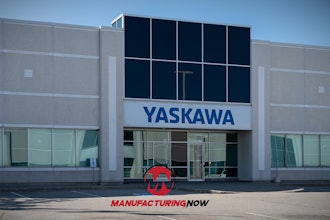On April 29, 2022, the 600-foot-long chemical tanker, the Endo Breeze, was in the Raritan Bay between New York and New Jersey when oil spray from a fuel injector pump on the starboard main engine ignited off nearby hot surfaces and caused a fire. The crew successfully stopped the fire from spreading by removing fuel and oxygen sources and activating the vessel's fixed fire extinguishing system. However, while no pollution or injuries were reported, the blaze still caused some $1.2 million in damage.
Last week, the NTSB traced the root cause to a maintenance error. Investigators found a slight offset on the banjo tube assembly on the engine's no. 1 cylinder fuel injector pump. According to the NTSB, the engineer performing maintenance likely failed to correctly follow the manufacturer's procedure for fuel injector pump reassembly when performing maintenance a day before the fire.
A banjo tube is a type of fitting designed for routing liquids in high-pressure systems. It consists of a tube connected to the system by two banjo bolts (hollow bolts), allowing fluid to transfer.
Most Read on IEN:
- Tesla Delivers First Cybertrucks
- Podcast: VW's Job Cuts; U.S. Steel Idles Facility; Tesla's Standoff in Sweden
- 'World's Heaviest Wheeled Crane' Achieves Milestone in First Lift
- Kodiak Launches its First Autonomous Military Prototype Vehicle
According to the NTSB, this is no isolated incident. The agency says it has investigated several recent casualties involving mechanical or fuel line fitting failures that led to engine fires following engine maintenance. The Endo Breeze's engine room fire shows what can happen when equipment manufacturers' recommended maintenance procedures are not followed.
Specifically, the engineer didn't follow the tightening sequence described in the diesel engine manufacturer's manual, which led to the misalignment and failure of a high-pressure fuel connection on an engine's fuel injector pump's assembly.
The NTSB's report reinforces why it is critical to carefully follow manufacturer assembly procedures and review manuals and guidance on a regular basis. When working with diesel engine components, there is a high risk of fire associated with pressurized fuel.
The NTSB also emphasized the need for "realistic scenario-based training" to prevent and contain engine room fires.






















